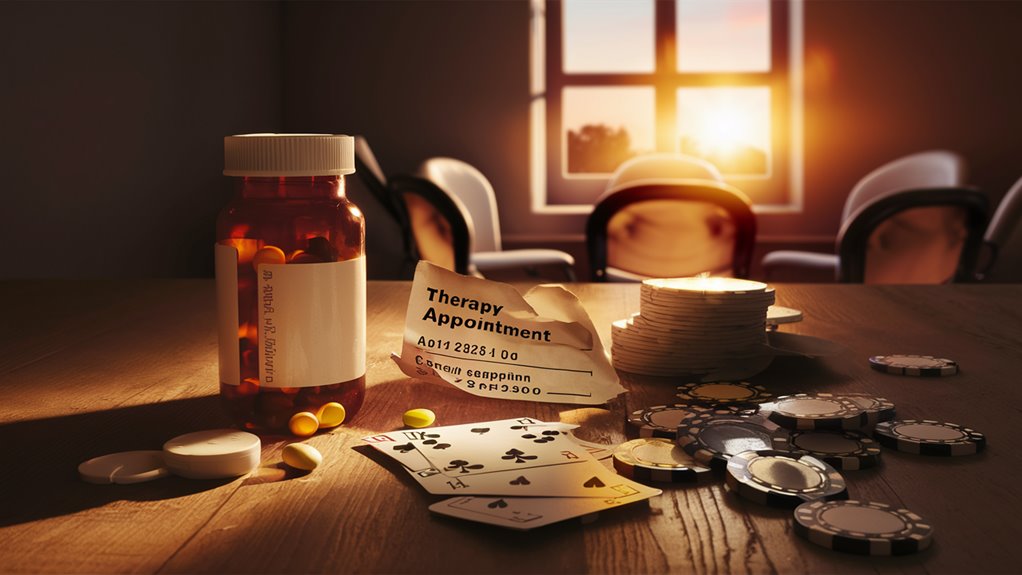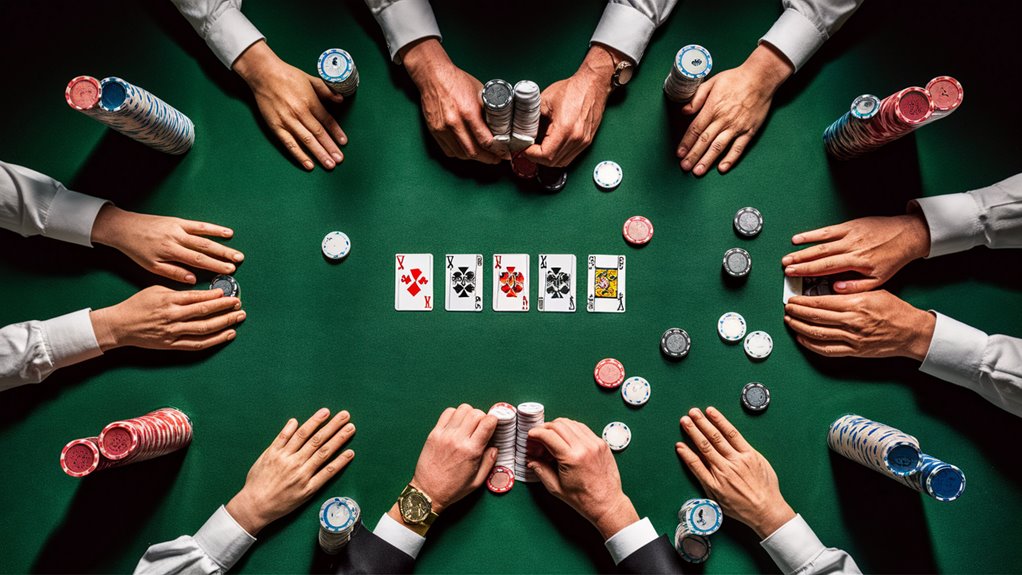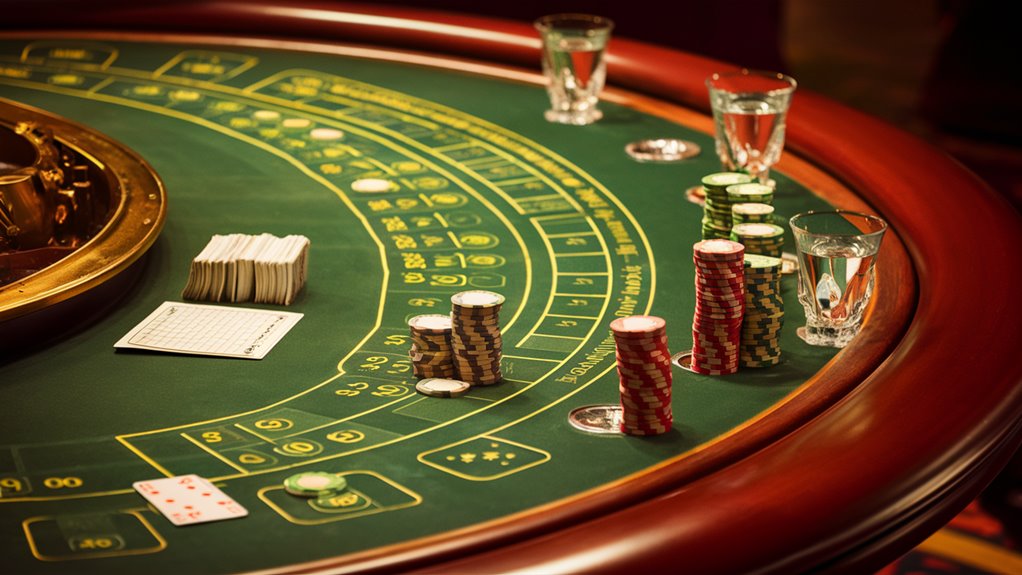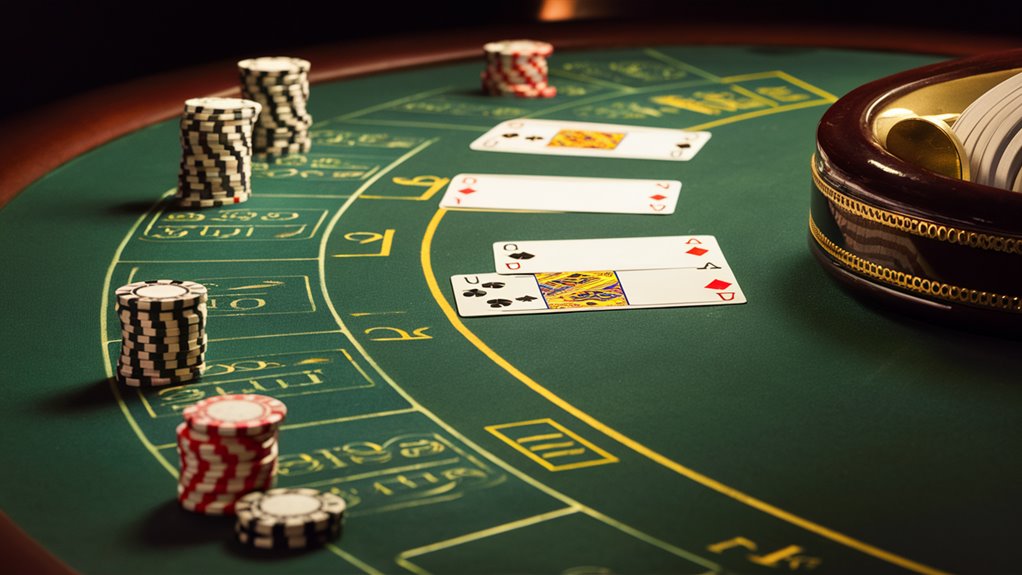How Gambling Affects Your Mind

Problem gambling deeply hurts mental health in many ways. The brain’s reward centers change a lot, just like in drug addiction. This is shown by messed up dopamine levels and less work in the prefrontal cortex, which messes up how we make choices.
Signs to Watch For
Signs of a gambling problem can be:
- Always thinking about betting
- Big mood changes and anxiety
- Feeling very sad
- Pulling away from people 온카스터디 공식파트너 확인
- Money problems
- Lying to hide betting
Help and Getting Better
Proven help methods offer ways to get better:
- Talking therapy (CBT) for thinking
- Drugs help with other issues
- Groups give help from others
- Money advice to get back on track
- Family therapy to fix relationships
Using all these helps together can break the cycle of gambling addiction. With expert help and ongoing support, people can heal and feel well again.
Getting Into the Gambling Mind
How the Brain Works on Gambling
Problem gambling messes with the brain’s deep works, involving the reward system and how we handle feelings.
Research shows that gambling sets off dopamine, which is also big in drug addiction.
This starts a tough cycle of waiting, doing, and getting rewarded that gets hard to stop.
Key Psychological Pieces
Thinking Errors
Gambling acts are strongly shaped by several mind tricks, with a big one being the feeling of control when they think they can change things by doing certain things.
The near-win effect is very strong – nearly winning makes the brain feel like it has won, making the person want to gamble more, despite losing more money.
Feeling Open and Compulsive Moves
Being emotionally open sparks problem gambling cases.
When people gamble to not feel bad or stressed, they’re at a much bigger risk of getting stuck in addictive moves.
This mix makes a cycle that keeps strengthening itself, making it really hard to stop without help.
How the brain reacts, mind tricks, and emotional pushes make a strong set for understanding how just-for-fun gambling can become a big mental issue needing pro help.
Top Mental Signs in Problem Gambling
Signs in Feelings and Thoughts
Problem gambling shows through clear signs of getting worse in mental health.
Key signs are:
- Always feeling anxious about losing money
- Can’t stop thinking about bets
- Feeling bad and guilty after betting
Signs Related to Mood
Big mood swings often are there with problem gambling:
- Getting mad when not gambling
- Feeling very sad when losing money
- Huge mood swings based on betting results
- Not sleeping well, having nightmares about gambling
Thinking Signs
Thinking in the wrong way often shows up as gambling gets worse:
- Thinking luck can be controlled
- Trying to win back losses by betting more
- Believing they can change chance results
Signs in How One Acts
Changes in how one acts show gambling issues:
- Pulling back from family and buddies
- Being sneaky about gambling
- Doing worse at work
- Ignoring family needs
- Money troubles from betting
Learning About Brain Works and Addictive Gambling

Brain Science on Gambling Addiction
Brain studies show that gambling addiction changes brain chemistry a lot like drug problems.
When gambling, the brain makes lots of dopamine, a key juice also in drug addiction. This brain juice goes up a lot with wins and near-wins, making a strong cycle that changes how nerves work.
Effects on Brain Jobs and Choices
The front part of the brain, which helps us make choices and control urges, works less during gambling. This is why gambling keeps going despite big money losses.
Also, the amygdala, the thrill part, gets too excited, making winning feel too good and losing not bad enough.
Long-Lasting Brain Changes
Changes in Nerve Ways and Reward Links
Long-time gambling makes lasting changes that keep going even when not gambling.
Lasting changes in the brain’s reward links can drop the feel-good from normal things. This often pushes toward bigger risks, needing bigger bets for the same happy feeling – much like growing tolerance in drug issues.
Disrupted Reward Ways
The brain’s reward paths change a lot with lots of gambling. These changes show in:
- Changed dopamine feel
- Twisted emotional handling
- Worse impulse control
- Changed risk checks
Breaking the Cycle: Beating Gambling Addiction
Proven Help Ways
A full plan joins behavior therapy, drug help, and brain training to fix reward paths in the brain.
This full approach deals with both mind and brain sides of getting better from gambling addiction.
Help Steps
Talking therapy (CBT) helps people:
- Find what starts their gambling
- Fix bad thoughts
- Learn how to cope
- Change how they act
Help with Drugs
Proven drugs are key in healing:
- Naltrexone cuts the need to gamble
- SSRIs fix moods and drop anxiety
- Drugs that keep brain juice in check
Training the Brain and Healing
Brain training makes the decision part of the brain stronger through:
- Focusing practice
- Controlling urges
- Handling feelings better
Money Safety
Putting in money walls:
- Having trusted ones handle accounts
- Limited reach to gambling money
- Planned money care
- Pro eyes during healing
Help and Support Options for Gambling Addiction
Pro Health Help
Talking therapy (CBT) is a top proven help for gambling addiction, helping people see and change harmful thoughts and acts.
Mental pros use special skills to tackle the deep causes and mind parts of gambling issues.
Help with Drugs
Drug help options include accepted drugs like naltrexone and serotonin pills (SSRIs). These handle the urge to gamble while dealing with other issues like sadness and worry.
Health givers tailor drug plans for each person’s needs.
Groups and Healing Plans
Gamblers Anonymous gives key peer support with their proven 12-step plan.
These groups offer important partnerships and shared stories that help long healing.
Group meetings give safe spots for people to talk about hard times and good steps.
Money Healing Help
Pro money advice is key in full treatment. Passed money pros in addiction healing help make:
- How to handle debt
- Ways to keep money in check
- Plans to fix budgets
- Ways to keep money safe
Deep Help Options
Stay-in help places give a set place for hard cases, featuring:
- All-time pro watch Why They’re So Popular
- Deep talk sessions
- Places without triggers
- Full healing plans
Healing win depends on making plans for each person, looking at how bad the addiction is, other mind health issues, and the support available.


